Celiac Disease: My Journey and Everything You Need To Know Gluten-Free!
from celiaccentral.org
It has been almost 11 years since I was diagnosed with Celiac Disease—I was 18 years old, a freshman in college and dealing with a lot of different major stressors in my life. My mom told me that I had a lot of belly issues as a baby and was always constipated, but as I got older, other than chronic headaches, I didn’t have many other symptoms until 2008. You can have the genetic marker and it is not until a stressful event or illness that actually triggers it, like it did for me. It all happened so fast, and I am so thankful for the love and support of my family and friends through that tough time. Once I was diagnosed it took a month of being gluten-free to actually start feeling better, but there is no looking back and no, I am never tempted to “cheat” because, the aftermath is horrible. (I get this question often).
Some of you may be asking—
What exactly is Celiac Disease?
I have many people who think that my “allergy” causes an anaphylactic reaction, which is logical, but it is very different. Celiac disease is an autoimmune disease that causes my body to see gluten as an invader so my immune system responds by damaging the villi in the small intestine. It is genetic and both my mom and youngest sister have it too. It affects us all differently and amazes me how something so small can cause so much damage to our body. For me, once I get “glutened” (I turned it into a verb hah), within an hour or two, I start to have tons of GI issues and feel off for the next few days.
So What are the symptoms?
Me in 2009 91 lbs before getting diagnosed with Celiac Disease
Common symptoms of Celiac disease are abdominal pain, bloating, cramping, weight gain or loss, constipation, diarrhea and alternating between constipation and diarrhea. I suffered from severe weight loss (I weighed 95lbs at my lowest..yes horrible) , severe stomach pain and constipation. For me, when my villi were injured, my small intestine couldn’t properly absorb nutrients from food. and since I live an active lifestyle, this caused me to lose a lot of weight fast. Food just passed right through me. It was bad. At one point I honestly thought I was going to die. All I can say is that I am thankful for my diagnosis and grateful that all I have to do is eat gluten-free.
I am also grateful it did not have any long term effects on my body and that I was able to carry two healthy babies.
So What is gluten and Where is it Found?
Gluten is a protein found in wheat, rye, and barley. It is also in most oats, not because of the oat itself, but because of the way it is processed.
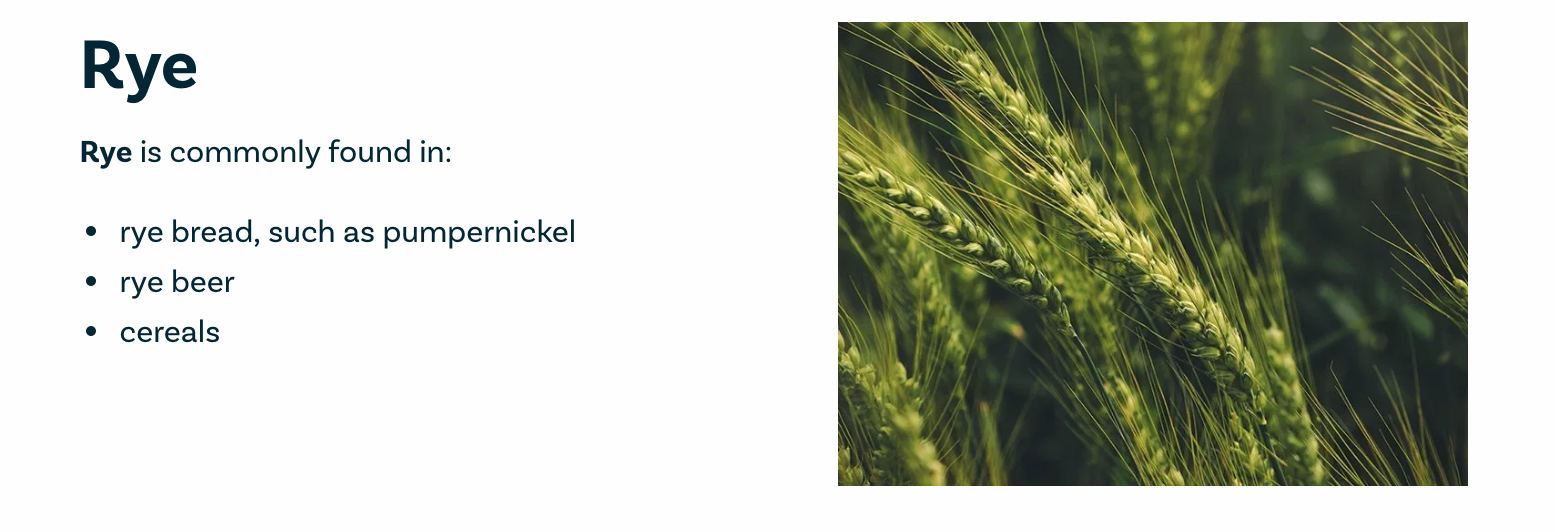
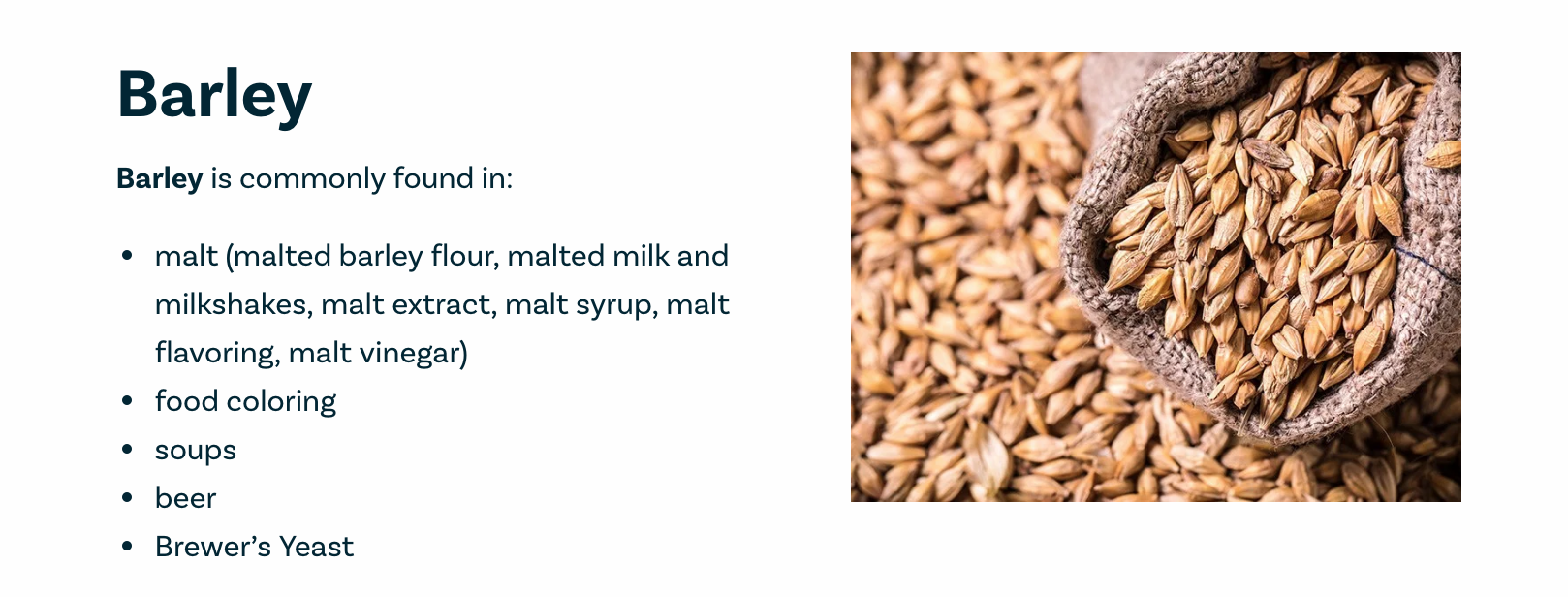
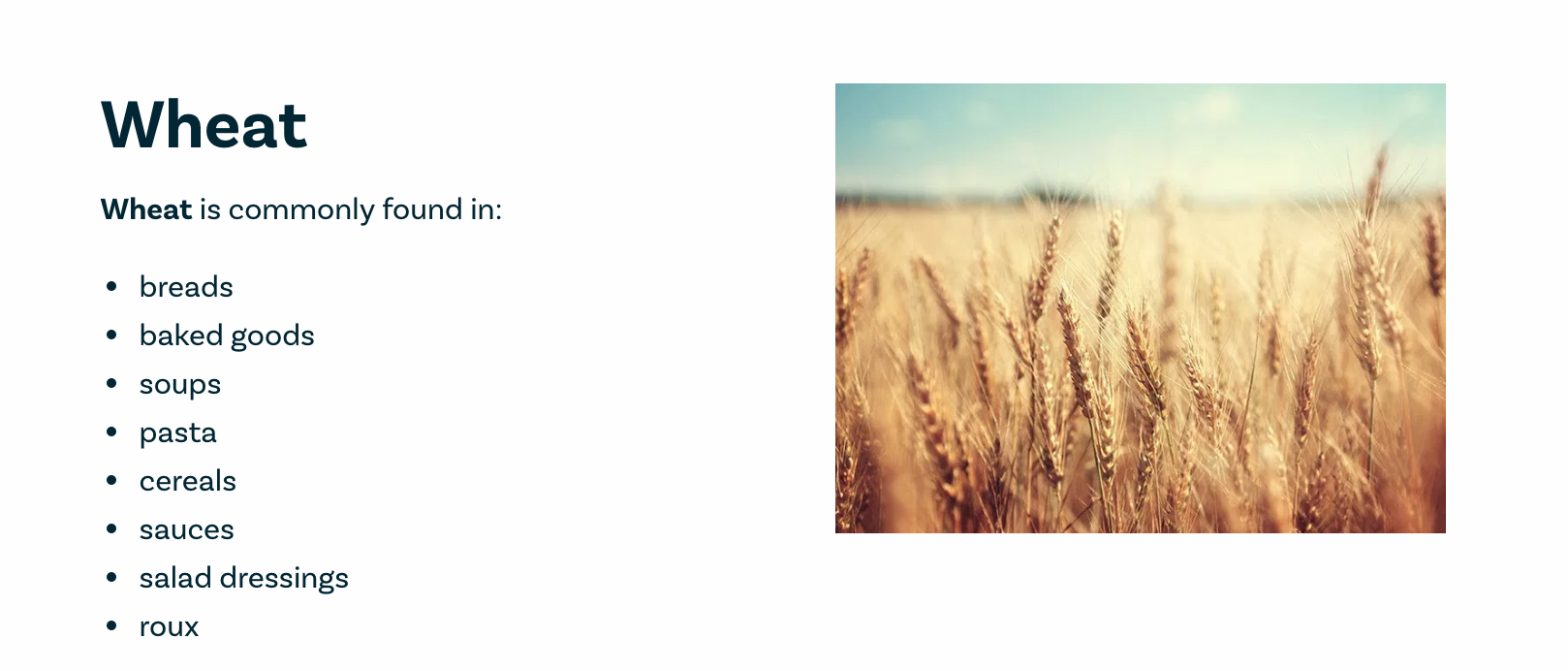
photos from https://celiac.org/gluten-free-living/what-is-gluten/
How does gluten affect my body?
If you have Celiac disease like I do, your body thinks gluten is a foreign substance. So, when gluten reaches your stomach, it panics. Your stomach reacts by sending antibodies to attack the unknown substance. This causes your immune system to become hyper-alert with auto-immune components. This can cause your body to attack its own tissue in the small intestine. When your immune system reacts to the gluten, it damages the villi (small “fingers” in your small intestine that absorb nutrients from your food), so they cannot properly absorb the nutrients from the food you are eating.
How Do You Get Diagnosed?
There are a few ways to get a confirmed diagnoses. For 1, you do have to be eating gluten to get an accurate diagnosis.
2 Blood tests:
Serology testing looks for antibodies in your blood. Elevated levels of certain antibody proteins indicate an immune reaction to gluten.
Genetic testing for human leukocyte antigens (HLA-DQ2 and HLA-DQ8) can be used to rule out celiac disease.
If you test positive, they will likely do an Endoscopy to confirm the damage to your villi in your small intestines.
Since it is Genetic, Many ask if I will test my kiddos and the answer is yes, but blood tests are not always accurate in very young children. If your child is less than 3 years old, they advise you to see a gastroenterologist instead of relying on blood tests results. Since my kiddos haven’t had any symptoms and tolerate gluten fine, I will wait.
My healthy, happy, gluten-free life. Thankful that I feel good and haven’t had any other autoimmune issues yet.
Approximately 1 in 100 (1%) people have Celiac Disease. You can Click on this link for more information about celiac disease.
You’ve just been diagnosed with celiac, or gluten sensitivity, or you’ve figured out through process of elimination that gluten does you no good. What do you do first?
Going gluten-free can be totally overwhelming at first. I promise that it does get easier and that you will feel better. There are a lot of hidden sources of gluten including (soup, mixes, salad dressings, sauces, alcohol, certain vitamins, medications, and even Play-Doh.) You will have to look at every label.
Try and focus on what you can eat and not what you can’t eat. There is a whole big beautiful world of naturally gluten-free foods out there!
Focus on foods that are naturally gluten free not packaged foods —Fruits, vegetables, beans, rice, unprocessed meats, dairy, most cheeses, fish, and seafood. Packaged gluten-free goodies are still unhealthy and tons of sugar if not more than regular items. and sorry to break it to you, gluten free pizza isn’t healthier either (there are exceptions). Just like anything else, everything in moderation.
do your research and read as much as you can. (be sure it is a reliable source)
Follow gluten-free accounts on IG and pinterest for inspiration.



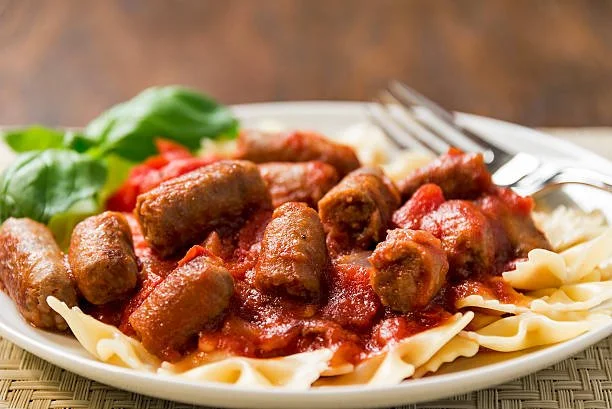
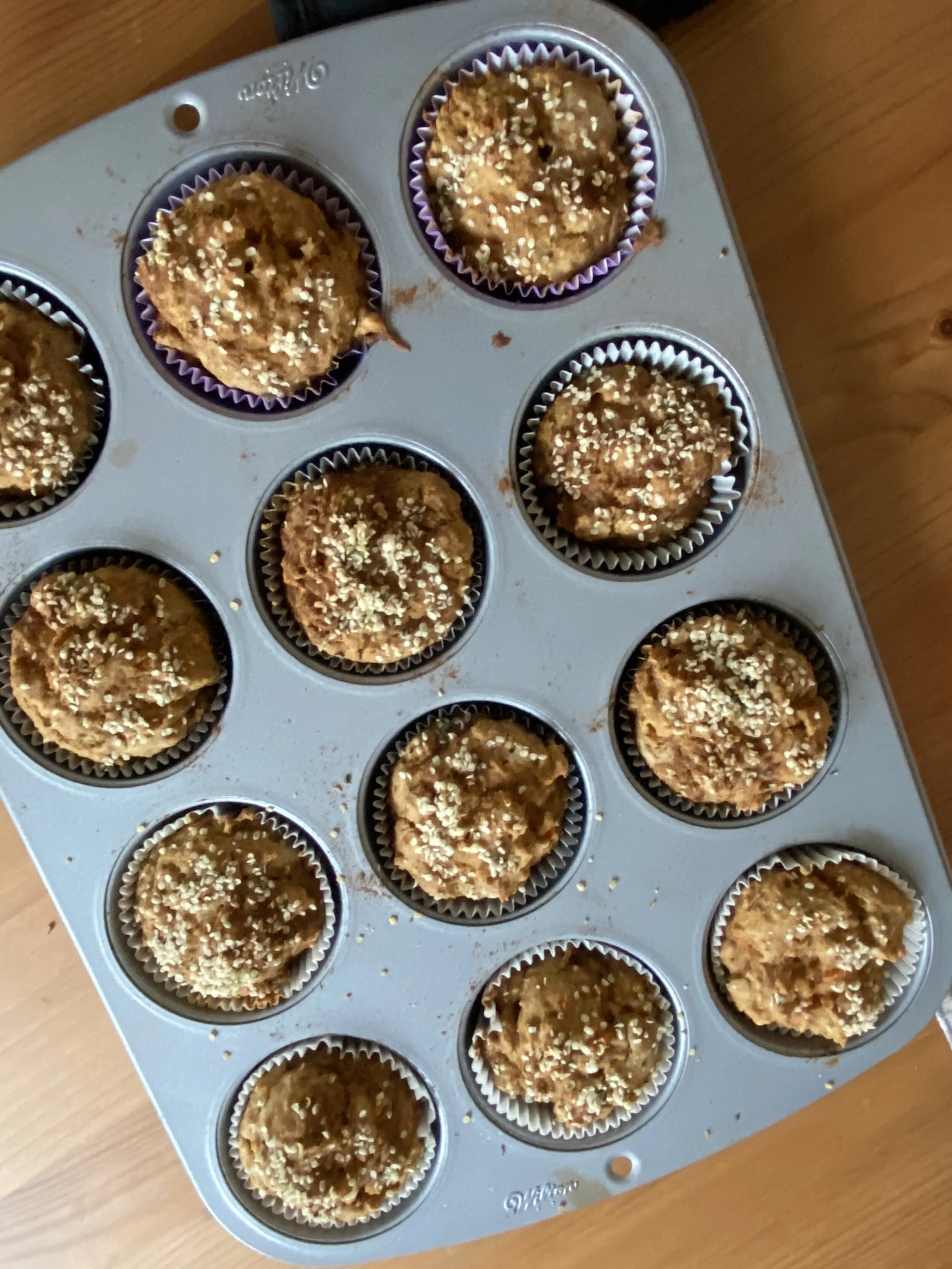

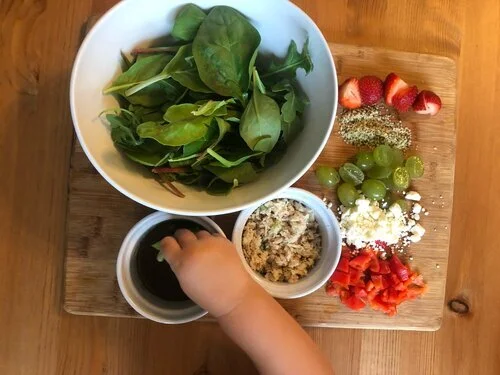
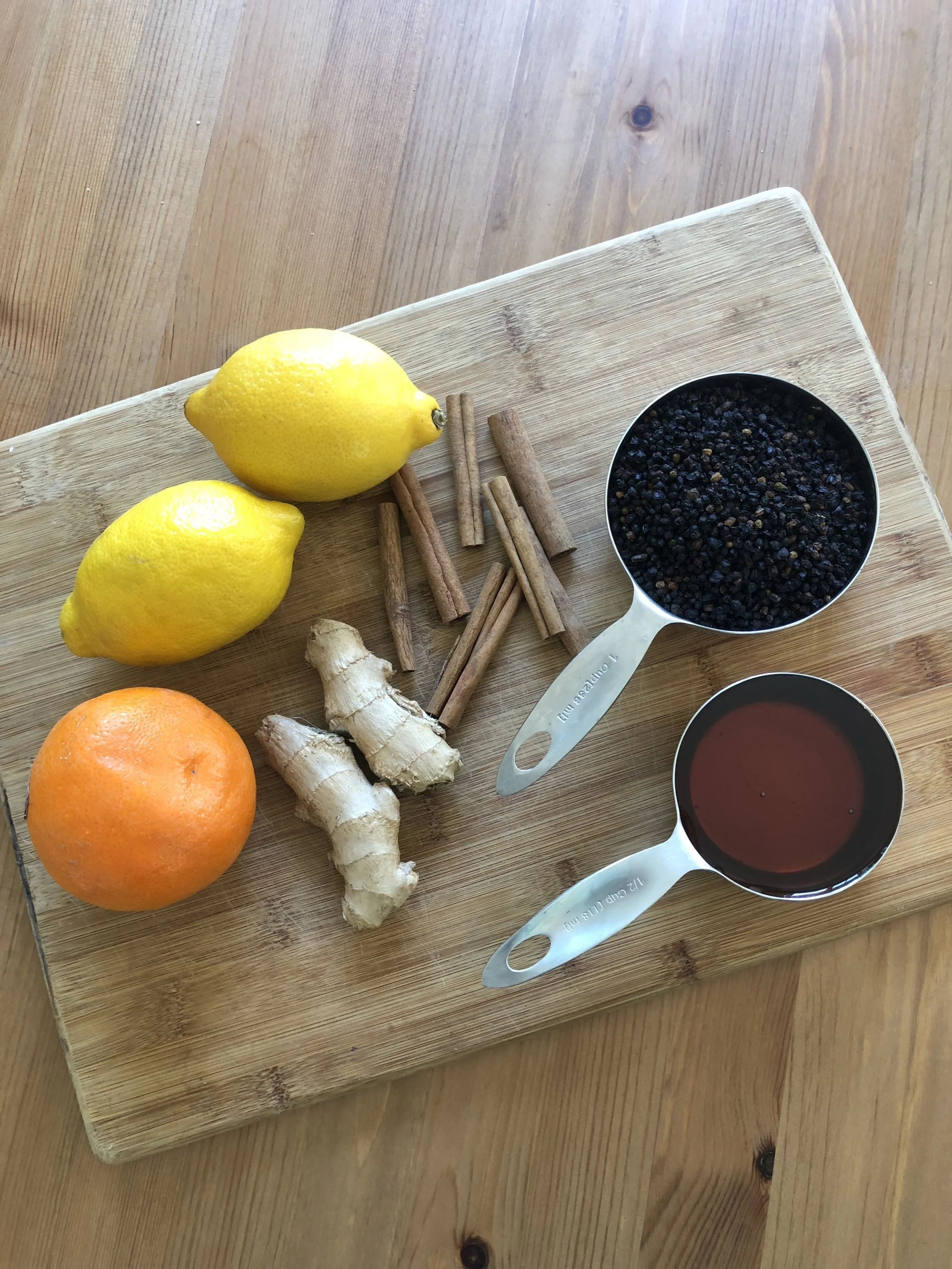




this Protein-Packed One-Pot Pasta is a lifesaver. It’s quick to make, easy to clean up, and packed with nutrients to keep you and your family energized.